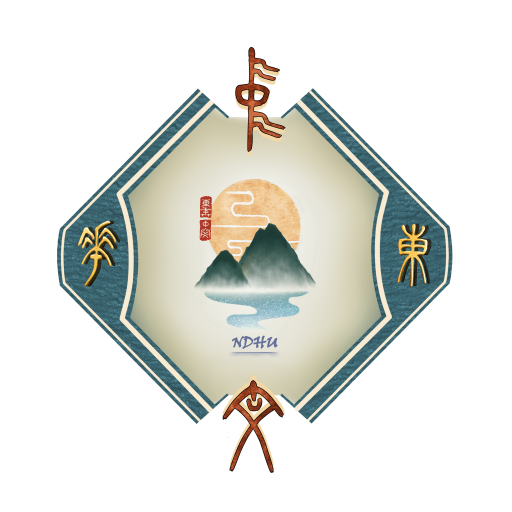National Dong Hwa University: A Unified Vision for Chinese Language and Literature
To optimize national education resources, enhance the quality of tertiary education, and foster outstanding university development, the government has actively promoted university integration. Under this premise, National Hualien University of Education (NHLUE) and National Dong Hwa University (NDHU) merged in 2008, retaining the name National Dong Hwa University (NDHU).
The Department of Chinese Language and Literature itself underwent integration, combining the former Meilun campus, Shoufeng campus, and the Institute of Folk Literature. This process concluded in 2010, endowing our department with both a rich history and a contemporary structure.
A Brief Introduction to Our Integrated Legacy
Meilun Campus (Formerly Hualien Teachers College)
Established in 1987, the institution now known as the Meilun Campus has a significant history. Originally resurrected by the government as Taiwan Province Hualien Normal School and later renamed Hualien Teachers College in 1999, it founded the Language Education Department with the mission of training exceptional elementary school teachers. Our department's early emphasis was on fostering simplicity, honesty, conscientiousness, and meticulousness. We focused on students' fundamental language abilities, a strong appreciation for cultural courses, and disciplined conduct. This approach aimed to produce excellent teachers with a keen artistic sensibility, prepared to educate elementary students.
In 2003, the department was renamed the Department of Chinese and Literature Education, and a Master's (M.A.) program was added in 2005. With the advent of multi-teacher cultivation, Hualien Teachers College became National Hualien University of Education in 2005. The university was organized into four colleges: Humanities and Society, Education, Science, and Fine Arts, with our department situated within the College of Humanities and Society. In the same year, the Department of Taiwan and Regional Studies branched off from our department. In 2006, it was renamed the Department of Chinese Language and Literature, marking a shift from a teacher-training focus to a broader Chinese language and literature curriculum. Upon the merger of the universities, and in recognition of its established reputation, our department was temporarily designated the Department of Chinese Language and Literature (Meilun Campus), with further departmental affairs to be discussed post-merger.
Shoufeng Campus
Founded in 1996, the Shoufeng Campus introduced Ph.D. and M.A. programs in 2000. Our guiding principles are to broaden international vision, uphold noble humanistic ideals, and maintain precise teaching attitudes.
We integrate theory with practice, classical with modern studies, and Chinese with Western cultures. Our commitment lies in responding to contemporary cultural contexts, ensuring that traditional studies remain vibrant and relevant. Courses are designed to facilitate a comprehensive understanding of both classical and modern literature. We encourage our students to critically engage with internationalization, localization, and the diversity of academic trends, empowering them to apply their knowledge effectively. Our aim is for knowledge to converge with reality, pursuing both truth and goodness. While our primary focus is on literature, we do not overlook foundational courses. Language and ideological culture are considered complementary, forming a core aim of our research.
Graduate School of Folk Literature (Originally NHLUE Graduate School of Folk Literature)
Established in 1998, this was the first Graduate School of Folk Literature in Taiwan, offering both Ph.D. and M.A. programs. Our mission is to collect, develop, research, and promote folk literature, thereby exalting traditional culture and encouraging mutual communication.
Our primary research fields include Chinese folk literature, Taiwan folk literature, and comparative folk literature. We regularly publish our research periodical, organize seminars and learning camps, and maintain continuous research exchanges with various folk literature institutes. Since the university merger, the Graduate School of Folk Literature has been integrated into the Department of Chinese Language and Literature, now known as the Department of Chinese Language and Literature, Folk Literature Ph.D. Program and M.A. Program. We anticipate this change will bring forth a revitalized appearance for our programs.
Summary
In the first semester of 2010, the department was formally named the Department of Chinese Language and Literature, National Dong Hwa University.
The department now offers a Bachelor's program, a M.A. program, and a Ph.D. program. We believe our outstanding faculty will uphold the core values of Chinese studies while pioneering new academic horizons in the field.
